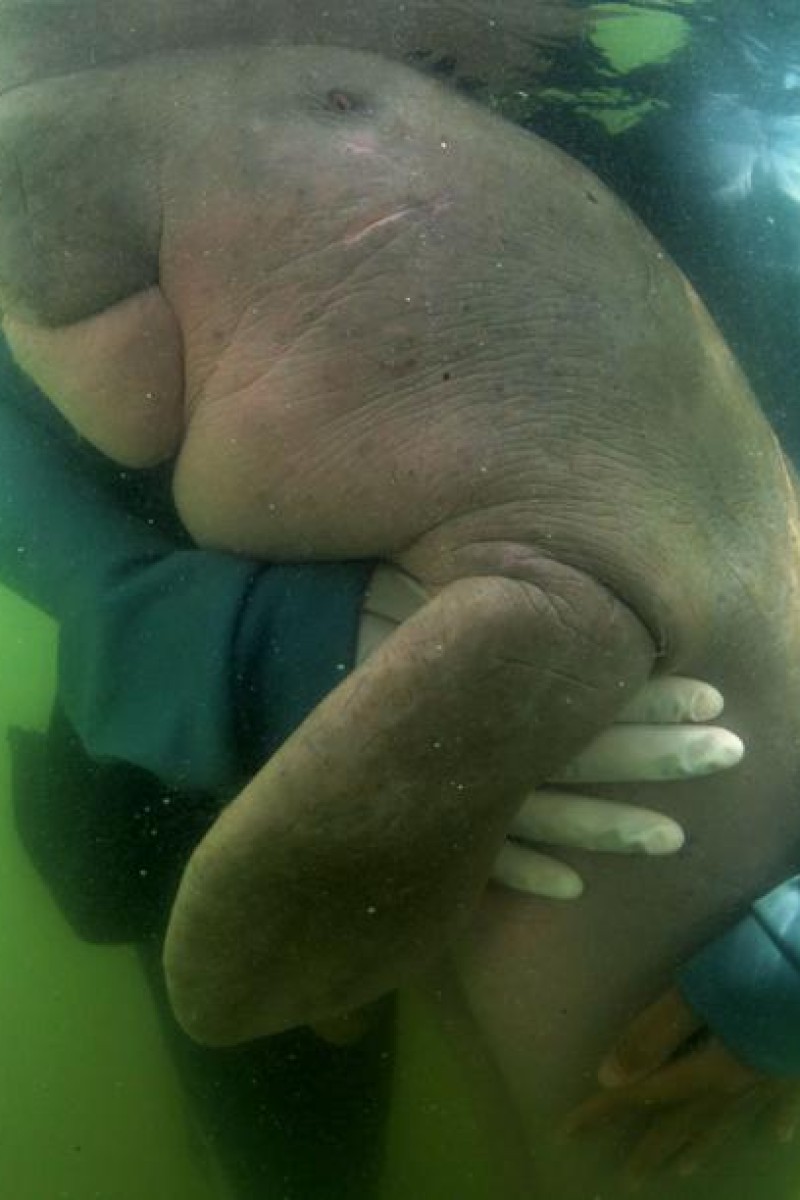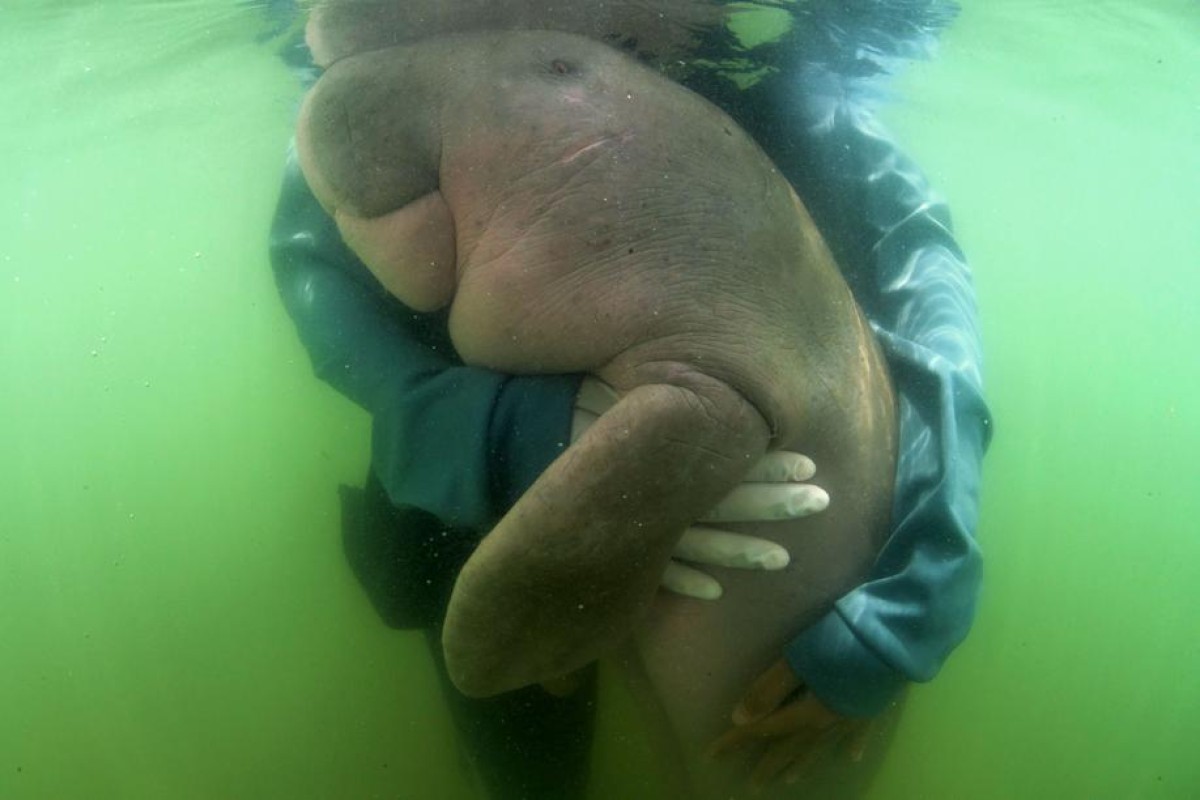
Plastic leads to death of baby dugong in Thailand, in yet another reminder of our responsibility to the natural world
Marium became known as the 'nation's sweetheart' after photos of her being fed and hugged spread across social media in April

An orphaned dugong named Marium, who became an internet star after being rescued in Thailand in April, has died.
Vets caring for the dugong off the island of Koh Libong, in south Thailand’s Trang province, said an infection caused by ingesting plastic, which the vets assume she thought was edible, contributed to her death. They added that the loss of the animal, named “the nation’s sweetheart” by Thailand’s department of marine and coastal resources (DMCR), should serve as a warning about the effects of plastic waste on wildlife.
Dugongs – marine mammals that grow up to three metres long – are vulnerable to extinction, with up to only 250 believed to be living in Thai waters. A team of around 10 vets plus 40 volunteers looked after Marium in shallow water off Koh Libong, after discovering her alone and malnourished in nearby Krabi province.
Plastic was also responsible for the death of Billy, a beloved Lantau bull
Aged around four months when she was found, Marium became famous after photos of her hugging vets were posted online and the DMCR set up cameras to livestream her being fed milk formula. Last week she showed signs of stress and refused to feed, after encountering another dugong in the ocean.
On Wednesday, Marium was moved to a nursery tank for close monitoring but died early on Saturday morning. Vets said the animal showed signs of shock, and that her autopsy revealed that small plastic pieces had clogged and inflamed her intestines, causing infection.
They found bruises on Marium’s body, which they said may have been caused by an attack from another dugong.
Scientists find plastic pollution may be spread in the air
“Everyone is sad about this loss,” said Nantarika Chansue, director of Chulalongkorn University’s aquatic animal medicine unit in Bangkok. “The thing that needs to be resolved, if we’re going to preserve rare marine animals, is to protect the environment for both people and animals.”
Last month on Koh Libong, when Marium was in good health, Chansue voiced concern about the potential for a dugong medical crisis. “One thing we haven’t been ready for is if there’s an emergency,” she said. “In case something happens … this is quite far from the [main]land. We’ve prepared emergency equipment … [but] anything is possible.”
A whale was found starved to death - with a stomach full of plastic
A second orphaned dugong, who is younger than Marium and was found in June near Marium’s original rescue location, is being cared for in the Phuket Marine Biology Centre. Vets were considering moving the creature, a male named Jamil, to Koh Libong when he grew strong enough to deal with ocean conditions. They hoped that both Marium and Jamil would strike out alone in the sea when aged around 18 months, the age at which dugongs leave their mothers in the wild.
Speaking last month, Chansue said: “Everyone fell in love with these two babies.”